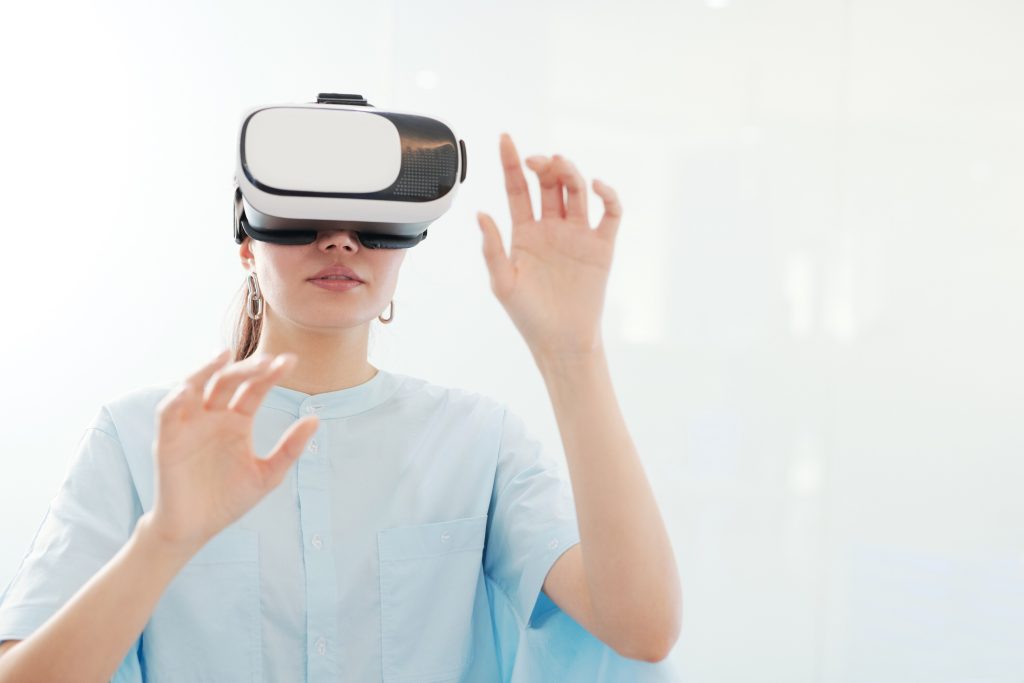Article from the column ” Wellness according to Matthew ” of the magazine Area Wellness.
By Matteo Brusaferri

Digital-Wellbeing, or the fusion of two words, among the most used in the last twenty years. According to Wikipedia (of course, I didn’t dig up an old volume of my old encyclopedia), Digital Wellbeing would be the ability to create and maintain a healthy relationship with technology.
However, this concept, in its own terms, presents itself as a paradox. We all know, in fact, how much abuse is made of every technological novelty proposed by the market. So much so that, whether for professional, recreational, or commercial reasons, technology is currently considered one of the leading causes of stress.
But gone are the days when to reduce this psychophysical state, one would immerse themselves in a hot water pool. Today, other technologies and more electronic accessories appear indispensable to contrast it. Online, there are games designed to recreate mental well-being, or that reward players capable of dealing with stressful situations, through breathing exercises and modifications of unhealthy habits and lifestyles (I recommend: Calm, Breathe2Relax, and Superbetter).
From Google Play, you can download well over 10,000 apps that claim to keep both the body and mind healthy, and although not yet widely used, there are already virtual trainers and mental coaches created by artificial intelligence who, once stress and anxiety levels are measured, prescribe diets and indicate alternative lifestyles, providing valuable advice for all ages.
Many rely on common sense, like “Go play in the garden!” as my mom used to say, without having a degree in cybernetic psychology.
Then there are the well-being gadgets to wear. Anyone who thought only of smartwatches can be irretrievably assigned to the Boomer category! In fact, in addition to watches that count steps when we go running, devices to apply to clothes or the clothes themselves are now available, capable of monitoring heart rate, breathing, and body temperature, as well as exchanging information with the surrounding environment and teaching us, through impulses, how to improve our performance.
So, let’s move on to virtual reality, that of Meta, to be precise. The much-touted Zuckerberg Metaverse is struggling to take off, but the 3D goggles necessary to visit it are finding numerous other applications in various sectors (cars, fashion, education, etc.). Fitness and Wellbeing are certainly no exception because the Metaverse can become a good tool capable of turning physical exertion into a game and stimulating the user to work more intensely. Pedaling on a stationary bike immersed in nature recreated by virtual reality is undoubtedly more exciting than doing it looking at the wall of our room.
In the fitness industry, the 3D goggles are now a common tool, while for well-being, some SPA equipment companies are trying to combine virtual reality with relaxation techniques, offering massage beds connected to the VR goggles.
Technology and well-being are two elements so important and closely interconnected as to prompt Samsung Italy to create Welliving: “a program designed for the dissemination of a shared culture of well-being, based on an open approach to innovation, where technology becomes a catalyst and enabler of well-being experiences.” The new project, which will start on TikTok (where else?), will provide the consultancy of psychologists and psychiatrists with whom to confront for the management of stress-related issues (often created by social networks themselves, I add).
In conclusion, we are facing a dystopian future where we will have to rely completely on technology to restore or improve people’s well-being, but – in my opinion – this is like turning on a coal power plant to supply energy to air purifiers. A final piece of advice: buy an outdated 90s alarm clock and spend time in the morning trying to turn it off instead of diving headfirst into your phone. You will avoid notification stress, at least until you have had a good cup of coffee, preferably made with an old coffee pot.
 +39 0374 363069
+39 0374 363069 Up&Up – Agenzia comunicazione Brescia
Up&Up – Agenzia comunicazione Brescia